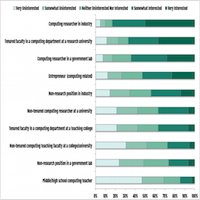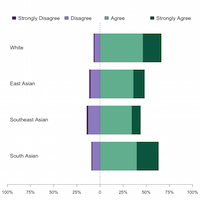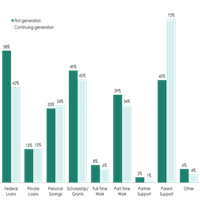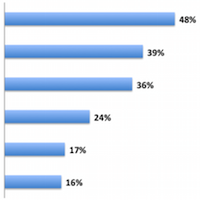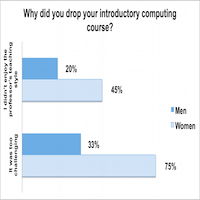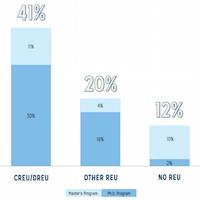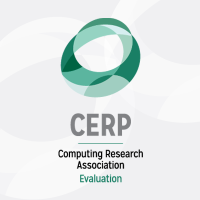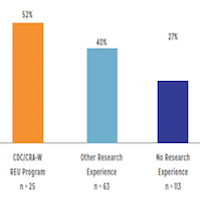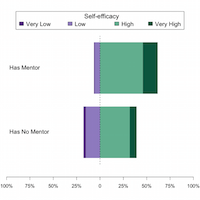
Graduate Students Without Versus With a Mentor Report Lower Self-Efficacy
While almost all computing graduate students have advisors, recent CERP data indicate many of those students do not have a mentor. Specifically, 17% of a sample of graduate students enrolled in computing programs (sample N = 2,617) indicated they did not “have a mentor with whom [they] have an ongoing relationship, and who provides [them] advice and assistance in advancing in [their] career.” The graphic above presents evidence toward a potential implication of not having a trusted mentor as a graduate student: relatively low self-efficacy. Self-efficacy refers to beliefs about one’s ability to plan for and execute steps necessary for future success. Indeed, the current analysis indicates students without a mentor report lower self-efficacy in their computing career track than students with a mentor, p ≤ .001.


